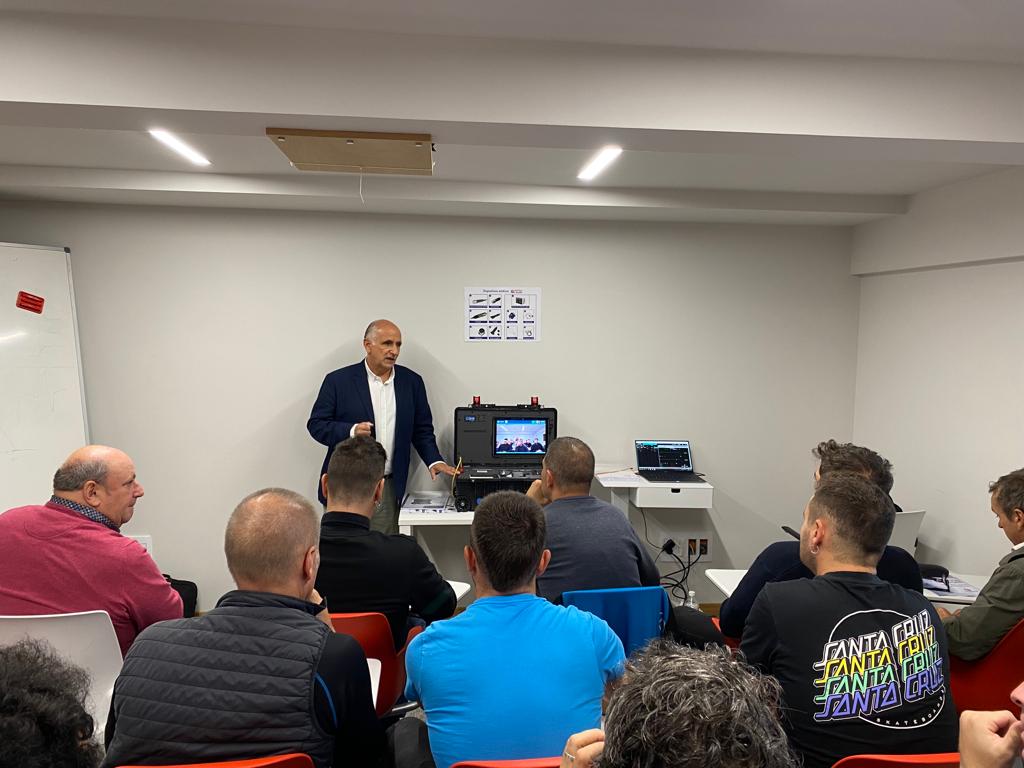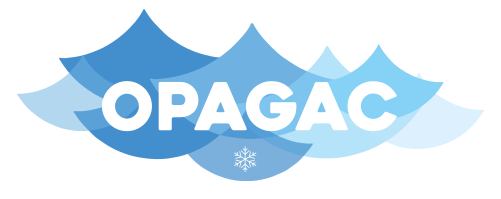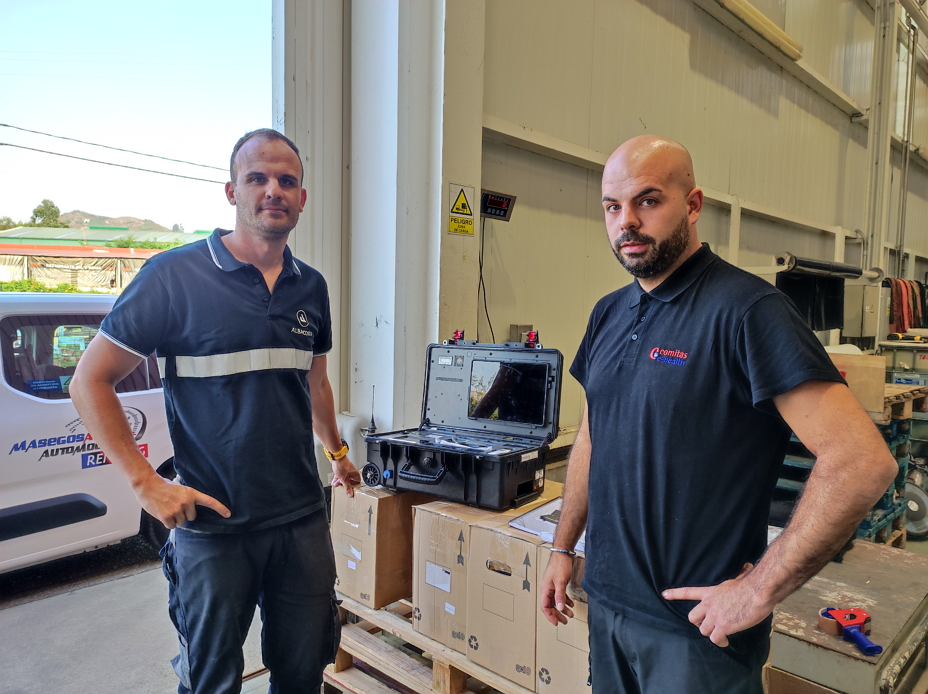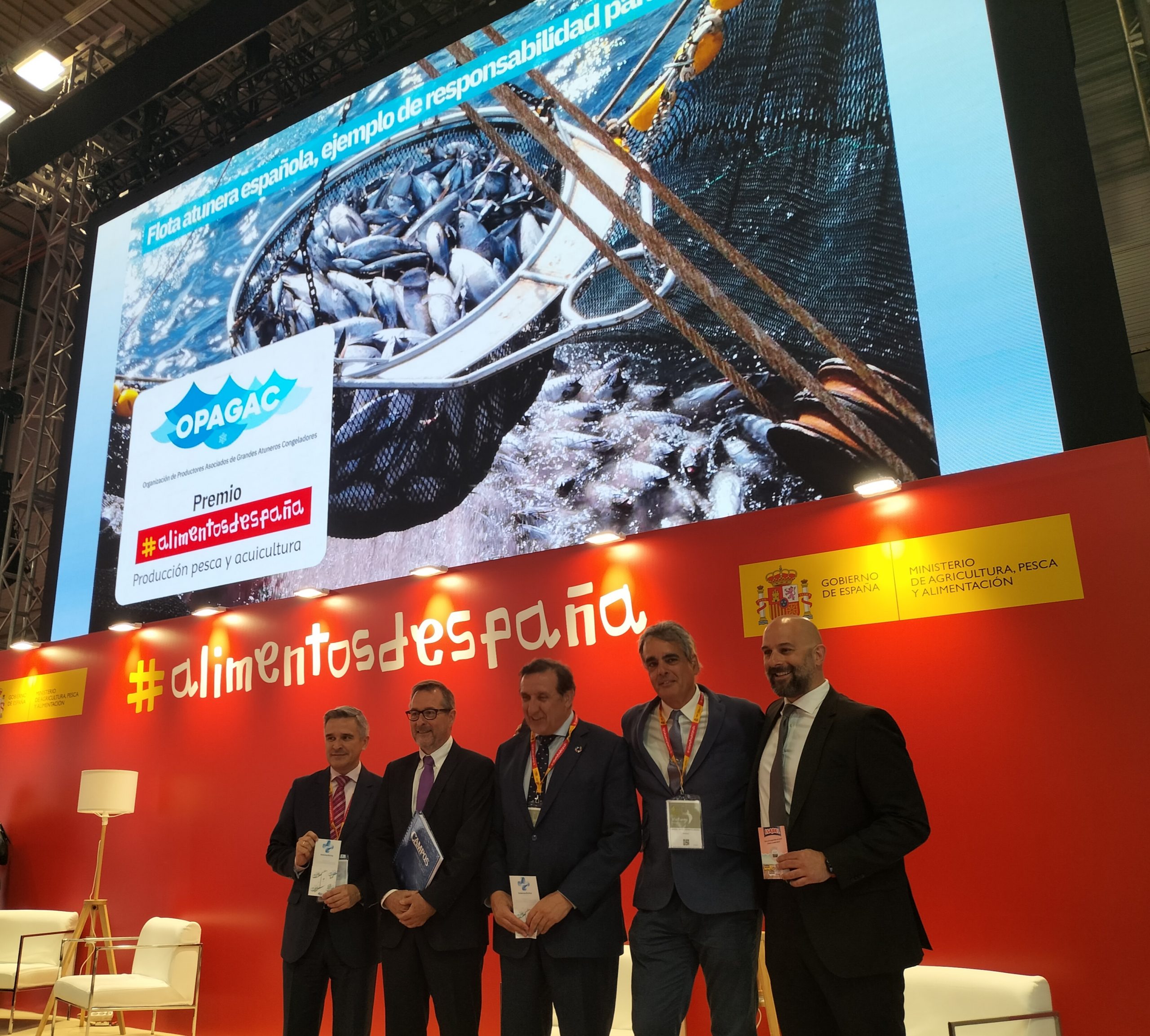
Over 400 crew members of the Spanish tuna fleet participate in the second stage of the first telemedicine system on board a fishery
More than 400 crew members on 12 Spanish tuna fleet vessels operating in the Atlantic, Pacific and Indian Oceans, are participating in the second stage of the first pilot project of a fishery worldwide to implement a telemedicine system[1] on board. The first stage (needs analysis) began last January. In this second stage, the fleet, forming part of the Organisation of Producers of Frozen Tuna (OPAGAC), has provided training to 29 masters, captains and deck officers on the use of the medical equipment that has already been put on board the vessels and that shall enable a basic examination of the patient to be done remotely by the medical services of the Nuestra Señora de Fátima Hospital of the Vithas Group in Vigo.
This project, the latest initiative of this fleet to continue making progress in the development of its social sustainability policy, shall be carried out under real working conditions on board the tuna vessels for nine months after the installation of the telemedicine equipment. The devices, similar to those used by the Armed Forces, have an instrument to monitor vital signs (electrocardiogram, arterial pressure, oxygen saturation and temperature) and a camera for dermatoscopic examination.
Specifically, the fleet has organised two training days on the use of these devices aimed at designated on board health officers. On the first day, held last August, eight workers, captains and deck officers belonging to Cantábrica de Túnidos received training. On the second, organised in Bermeo last September, 21 of these professionals from the Albacora, Inpesca and Atunera Dularra companies attended.
Each vessel shall also have circadian monitoring devices (fitness bracelets) that will enable crew members’ body temperature, physical activity, or sleep cycles to be recorded.
All the gathered data will be processed and analysed by the Polytechnic University of Madrid (UPM), which will analyse the specific circumstances of the most common on-board health problems and will identify the most suitable medical technologies to install on board. For its part, the Vithas Group will provide the 24/7 remote medical service from its Nuestra Señora de Fátima hospital in Vigo.
World reference in the well-being of its crew members
With this project, the objective of Opagac is to solve one of the main challenges of long-distance fleets: correct medical care for any health incident on board on the high seas.
The fleet will take advantage of the possibilities provided by technologies such as satellite communications or the Internet of Things (IoT), to offer its crew members a comprehensive, digital and connected medical service, and thus reduce the loss rate and derived costs.
With this project, Opagac, which has already shown its effort to promote social sustainability in fishing with the promotion of the Tuna from Responsible Fishing (APR) certification, takes another step forward in the field of labour protection and the improvement of its crew members’ safety. It is worth remembering that the APR certificate was awarded the Food Award of Spain 2020 by the Ministry of Agriculture, Fisheries and Food, for being the first in the world to certify tuna as being environmentally friendly and socially sustainable for consumers.
[1] This project has received public funding, as part of the 2021 call for Fisheries Innovation, included in Royal Decree 685/2021, of 3 August, which establishes the regulatory bases for subsidies to groups of entities that carry out investment and reform projects in the field of research for technological development, innovation and the balance of the commercialisation chain in the fisheries and aquaculture sector within the framework of the Recovery, Transformation and Resilience Plan, in the framework of the Spanish Government’s Recovery and Resilience Plan, financed with Next Generation EU funds.




Deja una respuesta
Lo siento, debes estar conectado para publicar un comentario.